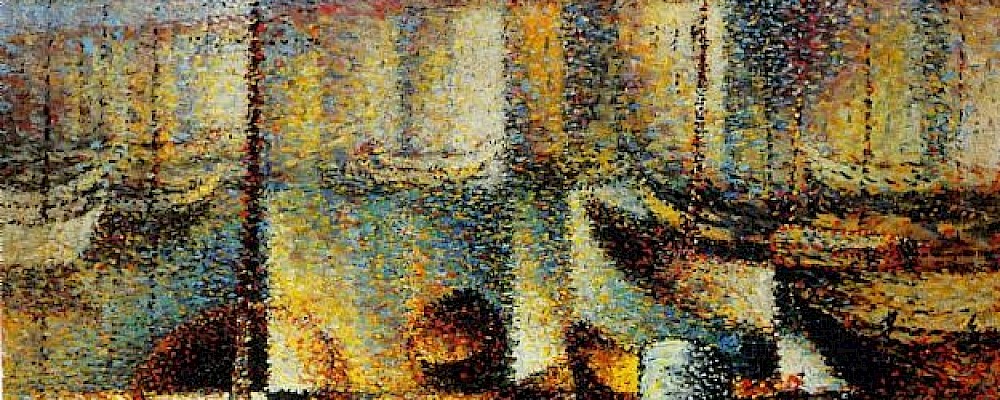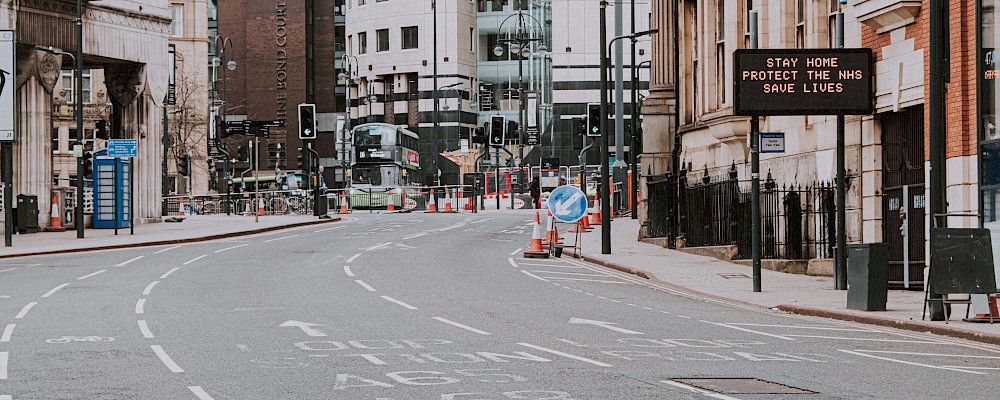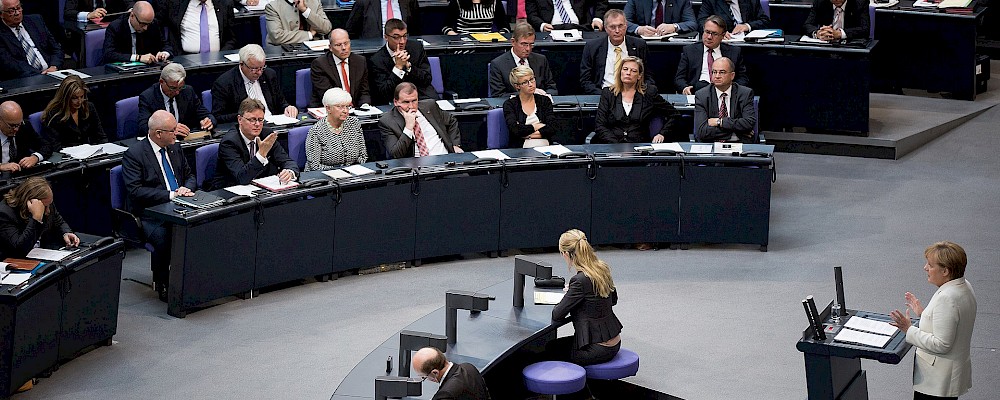F(EU)TURE FESTIVAL
The F(EU)TURE FESTIVAL took place from 1 to 16 of March 2019. Together with CLB Berlin, the European Democracy Lab turned Moritzplatz into a place breathing the European spirit as it is aptly called on the festival’s website. Together with activists, researchers, artists, intellectuals and a large number of visitors from all sectors of society, the state and future of European democracy were discussed. Our authors were on the spot and will go into some of the events below.

„The European Republic is under Construction”
The background of the festival was the idea of the European Republic, a proposal of the European Democracy Lab, which attempts to approach its implementation through strengthening European Democracy. The core demand is that all sovereignty should emanate from the citizen, which would not only imply the actual monetary union, but also a full political union, whereby citizens are subject to the same rights and duties.
Accordingly, the F(EU)TURE FESTIVAL was also inaugurated with the accompanying exhibition „The European Republic is under Construction“ at the CLB Berlin. This exhibition was the linchpin of the festival and could be visited during the whole festival time. The focus of the exhibition was the European Balcony Project 2018: Based on a manifesto co-initiated by Ulrike Guérot, Robert Menasse and Milo Rau, on 10th of November 2018 the European Republic was symbolically proclaimed as part of this art project at 200 locations in 25 countries. The pictures and videos of the exhibition are living proof of the broad social support for this action. The will for democratic change is impressively visible.
Building Europe. The Role of Images and Architecture in Making European Democracy (Dennis Pohl, UDK Berlin “Knowledge in the Arts”)
On 5 March, Denis Pole talked about the role of architecture in making European democracy. In general, there have always been discussions about whether Europe needs a capital. When the European Coal and Steel Community was established, Saarbrücken proposed plans to become its “Montanhauptstadt”. Since the ‘Treaty of Rome’ cities can apply to be the capital for a period of time. However, cities do not apply with a concept of architecture, but with maps of connection or circulation. Architecture shapes the way of representation. For example, in the early years of the Commission, every important visitor was photographed in front of the Commission building (Berlaymont building). This has now changed to the effect that the photographs in question are taken indoors for security reasons.
However, the crucial question is whether classical symbols work for the Union. In this context, Pohl also spoke about the notion of the cap by Derrida, which points at the fluid character of Europe – a Europe in becoming. Maybe Europe must be thought “out of the box” of classical symbols. A fluid construct like Europe needs a fluid way of representation. In the same vein, one could argue whether Brussels should be the capital of Europe. Perhaps it would be better if the capital is were located everywhere in Europe.
Menasse reading ‘The Capital’
Two days later, Robert Menasse read out of his famous book The Capital – “a satirical novel about the workings of the multinational Brussels bureaucracy” as Mark Lawson reviewed it in the Guardian. He continues: “The Capital delivers, within a brilliant satirical fiction, thoughtful and instructive analysis of both the weaknesses in the EU that galvanise leavers and the strengths that motivate remainers.” His lecture was followed by a discussion. He explained that during his research process he went to Brussels for some time and tried to understand the underlying structure of the EU, which he could hardly understand before.
It is obvious to Menasse that only a “European Republic” can tackle the problems we are facing today. This means equality before the law, which would also mean equal social rights for every European citizen. In this context, Menasse also spoke about the concept of a European unemployment insurance. The introduction of such a policy would pursue a convergence in living conditions across Europe.
Main event day
On March 15 the main festival day took place at the CLB and tak Theater. Starting with the symbolical proclamation of the European Republic accompanied by a performance of the Berliner Ensemble within the wider scope of the European Balcony Project, the manifesto declaring the European Republic was read out loud in all official European languages at Moritzplatz. The cold weather was offset by the collective energy infused by the European spirit.
Following this initial artistic performance, the Berlin candidates for the European Parliament elections taking place in May 2019, came over to the CLB for an election lunch to discuss their main programmatic proposals. The diversity of the contenders highlighted the divergence in their programs, but one overall cross-party consensus prevailed: the competencies of the European Parliament should be strengthened in the pursuit of a truly democratic European Parliamentd.
After a lively lunch with politicians of all colours, Saskia Sassen and Julien Deroin held a workshop on the role of cities and regions in global politics. The workshop mainly thematised the seemingly invisible interconnections common to cities around the world. Whether Sao Paulo, Chicago or Shanghai, these cities share a long economic history of heavy manufacturing and therefore standards of conduct and know-how. These so-called “global circuits” should be a focal point when rethinking the source of sovereignty in a globalized world.
Finally, the festival events at the CLB came to a closure with a workshop organized by European Alternatives to inform about the activist scene taking place ahead of the European Parliament elections. The European Union faces an existential threat posed by the far-right populist parties that are gradually winning protagonism at a national and European level. Therefore, European Alternative argues, the European citizenry should mobilize to challenge populist rhetoric with the expansion of social and economic rights.
Last but not least, the Mugmetdegoudentand theatre group from the Netherlands made their debut in Germany with an exhilarating piece on the political life of Charlotte Hajenius, a fictional EU commissary who exemplifies the contradictions and hypocrisies at the core of the EU. Based on a reality near analysis of the European bureaucratic architecture, Joan Nederlof combines humor and drama to paint the way ahead: a much-needed reformulation of how the EU is able to tackle problems when facing transnational challenges.
The success of the F(EU)TURE FESTIVAL sets the stage for the upcoming years, where the European Democracy Lab will continue to persevere on its attempt to create fairer and more accessible Europe!
More articles by these authors

Ein Strohmann geht um in Europa: Pauschalkritik an postkolonialem Denken als Tragödie und Farce
Niko Gäbs Polemik „Critical Highness“ weist darauf hin, dass es im postkolonialen Diskurs Leerstellen in Bezug auf Antisemitismus gibt. Dies zeigt nicht zuletzt die Debatte um den postkolonialen Theoretiker Achille Mbembe (Cheema/Mendel 2020). Auch Edward Said, Koryphäe der postkolonialen Theorie, steht im Verdacht „die Grundlagen eines sich postkolonial gerierenden Antisemitismus“ (Salzborn 2018, 124) zu formulieren. Nichtsdestotrotz liegen Gäbs Text einige Missverständnisse zugrunde, die wir im Rückgriff auf postkoloniale Theorien und neuere theoretische Entwicklungen erhellen wollen.

(Philosophische) Diskussion um Corona: Timeline Februar-April
In diesem Beitrag tragen wir eine Auswahl der zahlreichen Beiträge der philosophischen und soziologischen Diskussion zu und um das Coronavirus zusammen und liefern teilweise eine kurze Zusammenfassung der Beiträge. Wir vollziehen dabei den Gang der Kontroverse vor allem (aber nicht nur) anhand der Debatte nach, die sich ausgehend von dem Beitrag “The Invention of an Epidemic” des italienischen Philosophen Giorgio Agamben entwickelt hat.

Eva Illouz: Capitalist Subjectivity and the Internet
The Alexander von Humboldt Institute for Internet and Society (HIIG) and the Federal Agency for Civic Education (bpb) are jointly organising a series of scientific lectures on the topic "Making sense of the digital society". The rapid pace of technological change leads to enormous uncertainties. On 6 March 2019, Eva Illouz spoke at the HAU (Hebbel am Ufer) about “Capitalist subjectivity and the Internet”.
More articles in this category

Ist das Licht wirklich erloschen?
In ihrer politischen Analyse „Das Licht, das erlosch. Eine Abrechnung“ thematisieren die Autoren Ivan Krastev, bulgarischer Politologe, und Stephen Holmes, US-amerikanischer Professor für Rechtswissenschaften, den Aufschwung des demokratischen Liberalismus, der unmittelbar nach dem Zusammenbruch der Sowjetunion und dem Untergang der kommunistischen Ideologie Ende der 1980er Jahre in Ost- und Mitteleuropa Einzug hielt. Drei Jahrzehnte nach der politischen Wende folgte auf anfängliche Euphorie die Ernüchterung: Dort wo einst Überzeugung und Begeisterung für das westeuropäische demokratische Modell herrschte, kehrten Enttäuschung, Populismus und antiliberalen Revolte ein.

Bruno Latours Ausrufung des Kriegszustandes. Geopolitik, Klimabewegung, Utopie und der Kampf um Gaia - ein Kommentar.
"Facing Gaia" (dt. „Kampf um Gaia“) geht auf die "Gifford-Lectures" zurück, die der französische Soziologe Bruno Latour 2013 an der University of Edinburgh hielt. Darin plädiert er dafür, anzuerkennen, dass wir unter einem neuen Klimaregime leben, welches es notwendig mache, erneut geopolitisch zu denken.

Krisenhafte Demokratisierung: Philip Manows zweite politische Analyse erklärt die „(Ent-) demokratisierung der Demokratie“
Vor zwei Jahre erschien Philip Manows originelle Analyse des (nach wie vor aktuellen) Populismusphänomens. Mit seinem neuen Buch „(Ent-)demokratisierung der Demokratie“ ist ihm wiedermal eine differenzierte Deutung der politischen Gegenwart gelungen, die gewohnte Perspektiven verkehrt und sich von überkommenen Hypothesen abwendet.